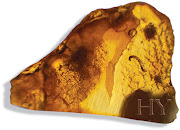
1. The Usrah
One of the most important training and educational process in contemporary Islamic movements as well as other developmental and knowledge building programme such as the tamrin – courses, lectures, seminars, workshops, intellectual discourses, symposiums etc.
The usrah is an informal programme although it is a regular, consistent and continous function.
The usrah ought to be dynamic with interactive participation and should not be a one-way communication affair.
2. Its Meaning
Literally, it means a family.
The usrah is a group of Muslim individuals getting together with faith in Islam, working and helping out one another, working together towards a better understanding and practice of Islam.
3. Its Aim
To uphold Allah’s syariah – commandments by mutual cooperation in enjoining good and God conciousness (taqwa) and to have complete trust in God (tawakkal); refraining from sin and enmity; guarding and cherishing one’s relationship with Allah and also one’s relationship with each other (amongst mankind).
i. nurture and develop closeness to Allah (muraqabah)
ii. committing one’s life to be guided by the Qur’an and the Sunnah
iii. be steadfast, have high morals, be God-conscious
iv. be sincere, willingly seeking Allah’s pleasure, hope, fear , having proper and right intentions
v. brotherhood
vi. teamwork and teambuilding
vii. sacrifice and jihad ( striving in the path of God)
viii. gain knowledge, deeds, enjoining good, developing a progressive society, strengthening the economy
4. Contents
i. Knowledge – Al Qur’an; sciences of the Al Qur’an, tafsir – exegesis , meanings, interpretation, context; Al hadith; sciences of the al hadith; aqidah – pillars of faith, al tawheed, akhlak – morals; tasawuf – spiritual purification; seerah – study of the Prophet’s lifetime; Islamic thought; the Islamic movement; current affairs
ii. Brotherhood (ukhwah) – unity of thought, worship, dhikr – remembrance of God; undertaking outings, journeys, picnics; visits – ziarah; mutual assistance, helping out, welfare; dining together
iii. Spiritual – jama’ah prayers, praying together; Qur’an recitations; night prayers, vigilance – qiamulail; supplementary prayers; authentic supplications – doa’ ma’thurat
iv. Organisational and Social – planning, implementation and management of dakwah (spreading the message of Islam); organisational affairs; social work in the community
5. Its Etiquette
i. sincerity of intention
ii. giving salam – warm greetings
iii. commitment to knowledge
iv. respect for the naqib (usrah facilitator)
v. moderate voice
vi. avoiding arguments and contentious debates
vii. moderate in laughter and humour
viii. guarding adab and discipline
ix. punctuality – always be on time
tak. loving each other in brotherhood
xi. be attentive ad respectful to the readings of the Qur’an
xii. enjoining one another to uphold truth and justice, to bear patience and forbearance
xiii. informing of one’s absence
xiv. try to be prepared for the usrah, having the necessary books, references, notes, stationery
xv. try to maintain and not to miss the jama’ah prayers, in dhikr and dining together
xvi. starting the session by reciting the al fatihah and ending by reciting the surah al ‘asr and tasbih kaffarah
6. Pillars of the Usrah
i. ta’aruf – introduction and getting to know one another
ii. tafahum – mutual understanding
iii. takaful – equitabilty, mutual cooperation, assistance, care and concern
7. Duty of the Naqib
To lead and facilitate the usrah; able to read the Qur’an and the hadith, have basic knowledge of Islam, an understanding of Islamic thought and the contemporary Islamic movement; have organisational management abilities and good morals.
8. The Goal of the Usrah
To create high awareness and deep understanding of the Islamic worldview (tasawwur),;spiritually purifying one’s heart and inner self; planning and developing the organisation.
The usrah provides direction towards building self confidence in a process of developing a balanced and well composed Muslim in all aspects – spiritually, mentally and physically.
The usrah develops into core units that will continue the mission of Islamic dakwah.
9. Its Importance and Significance
Groups of usrah are units and chains in the network of strengthening the contemporary Islamic movements and Islamic awareness. Its beginnings in the modern age was pioneered by al syahid Imam Hasan al Banna in the 1920’s and 1930’s at a time when the Muslim world was at its worst period in history and suffering untold backwardness. It was Egypt under British colonial rule and the state of the Muslim ummah throughout was weak and its leadership helplessly dire, lost their will and sense of direction, hopelessly demotivated and their practices straying away from their true religion.
The Ikhwan al Muslimoon ( the Islamic movement of that period) managed to break this inferiority complex and rebuilt the ummah’s self confidence, reforming society until Egypt gained independence and the Islamic movement served the ummah well in the early wars against the establishment of Israel.
Even though the Ikhwan were tragically and cruelly persecuted by subsequent Egyptian and Arab regimes, but they remained influential and still played a role in the development of Muslim societies in Egypt and the rest of the world until this day.
Its significant contribution is the development of a model for reconstruction of Islamic thought and pioneering the movement for Islamic reform and renewal until it spread across the globe, the phenomenon sometimes called “the Islamic resurgence”.
Among their contributions are the introduction of the usrah to the ummah and the continuation of the mission and message of dakwah. The mission and message which is none other than the mission and message brought by the Prophets, culminated by the Final Prophethood of Muhammad s.a.w., continued by the companions, the mujahidin, the salihin. The message inviting all of mankind to worship only Allah, truthfully and sincerely.
The model of the usrah is used and became widespread by the Muslim movements in all parts of the world. It is now a standard and is commonly practised in universities, colleges, educational institutions, schools, departments, offices, musallas and other organisations.
The usrah is the part that complements Islamic consciousness and is the spirit that brings alive and rejuvenates formal Islamic education, its related fields and studies and also makes possible organised Islamic work.












